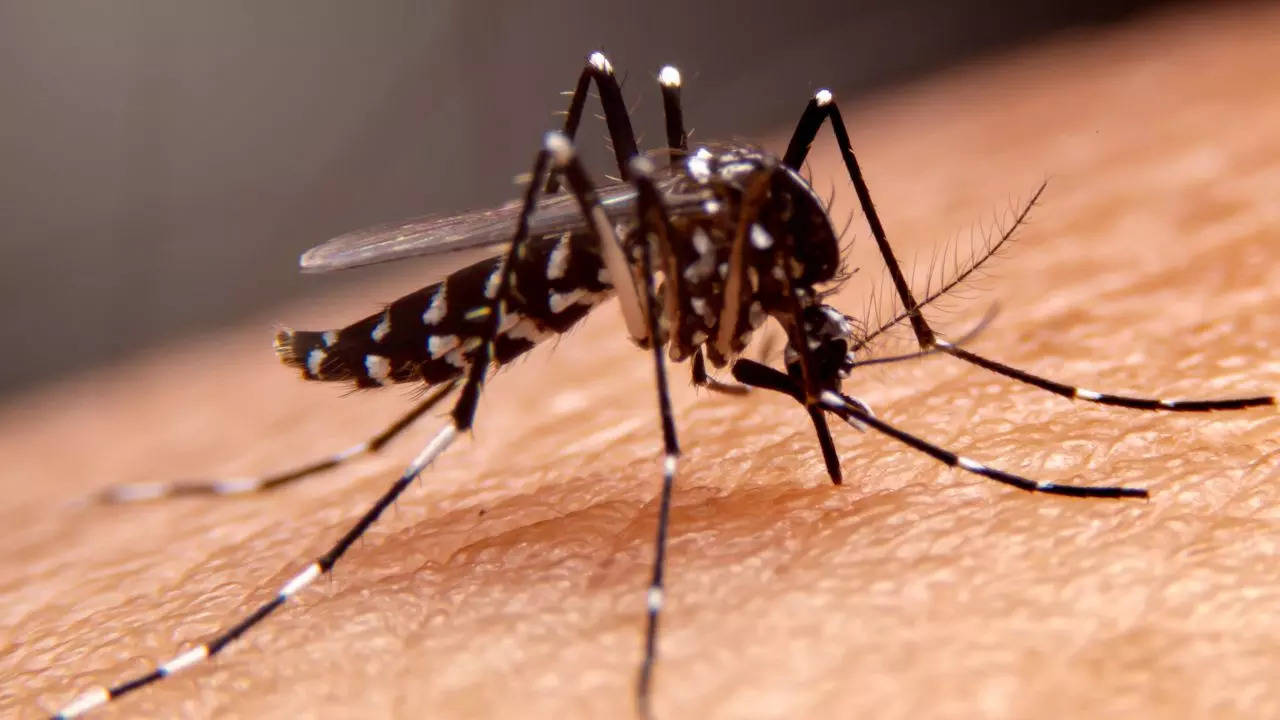
In the past 24 hours, Lucknow has reported 39 new cases of dengue and three of malaria, bringing the city's total tally to 837— where 429 dengue and 408 malaria cases, according to data from the chief medical officer (CMO) released on Saturday. The health department clarified that the death of a 71-year-old woman, a suspected dengue patient, was due to acute kidney injury, severe metabolic acidosis, and sudden cardiac pulmonary arrest, and not dengue.
Amid the rising cases, CMO teams continue to inspect high-risk areas, spraying insecticide to prevent mosquito breeding. On Saturday, the city’s malaria unit and district malaria officer visited 1,160 homes, finding mosquito breeding conditions in six. They also raised awareness of prevention measures. New dengue cases have emerged in Aliganj, Chander Nagar, Sarojini Nagar, NK Road, Indiranagar, Chinhat, Tudiyiaganj, Bakshi Ka Talab (BKT), and Aishbagh. Fresh malaria cases were reported from Aliganj, BKT, and Chander Nagar.
But how to know if someone has signs of dengue or malaria? Here we have listed the signs and symptoms of dengue and malaria to differentiate between the two.
Signs And Symptoms Of Dengue
Fever: Dengue typically begins with a sudden high fever. This fever can last for 2 to 7 days.
Severe Headaches: Intense headaches, often described as behind the eyes, are common in dengue cases. These headaches can become severe and debilitating.
Pain Behind the Eyes: Patients may experience pain behind the eyes, particularly when moving them from side to side.
Muscle and Joint Pain: Dengue fever is often associated with severe muscle and joint pain, which can make even simple movements uncomfortable.
Fatigue: Extreme tiredness and fatigue are typical during the acute phase of dengue fever. Patients may feel drained and lethargic.
Nausea and Vomiting: Many dengue patients experience nausea, vomiting, and loss of appetite, which can contribute to dehydration.
Skin Rash: A characteristic skin rash may appear after the initial fever subsides. This rash is typically bright red and may spread across the body.
Mild Bleeding: Some patients may experience mild bleeding, such as nosebleeds or bleeding gums. Severe bleeding is rare but can occur in severe cases known as dengue hemorrhagic fever.
Low Platelet Count: Dengue fever can lead to a decrease in platelet count, increasing the risk of bleeding and bruising. Monitoring platelet levels is essential in severe cases.
Dengue Shock Syndrome: In severe cases, dengue fever can progress to dengue shock syndrome, characterized by a sudden drop in blood pressure, leading to shock and organ failure. This is a medical emergency requiring immediate treatment.
Signs And Symptoms Of Malaria
Fever: Malaria often starts with a high fever, which can come and go in cycles. The fever may be accompanied by chills and sweating.
Headaches: Severe headaches are common in malaria infections, often occurring alongside the fever.
Fatigue: Malaria can cause extreme tiredness and weakness, even after minimal physical exertion.
Nausea and vomiting: Many individuals with malaria experience nausea, vomiting, and a general feeling of malaise.
Muscle aches: Malaria can cause muscle pains and aches throughout the body, which can be debilitating.
Joint pain: Some people with malaria may experience joint pain or stiffness, particularly in larger joints like the knees and shoulders.
Abdominal pain: Malaria can lead to abdominal discomfort, including cramping and tenderness.
Diarrhoea: In some cases, malaria can cause diarrhoea, adding to the overall discomfort and weakness experienced by the individual.
Jaundice: In severe cases of malaria, the skin and whites of the eyes may take on a yellowish hue due to liver dysfunction, a condition known as jaundice.
Anaemia: Malaria can lead to a decrease in red blood cells, causing anaemia, which may manifest as weakness, pale skin, and shortness of breath.

